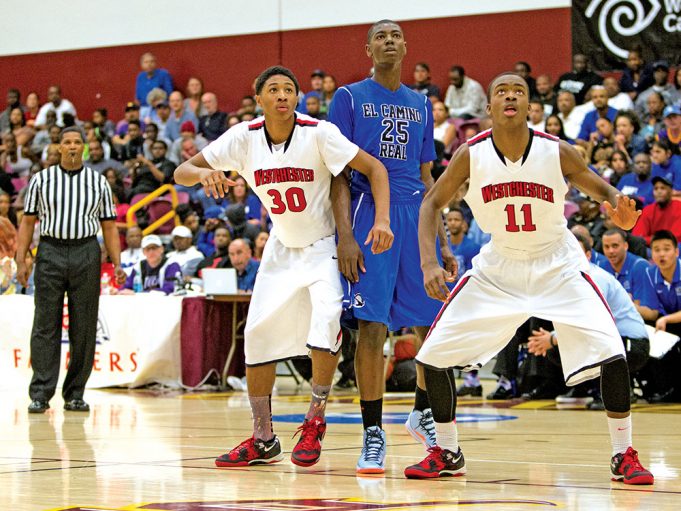If you’re not being honest with your partners, you’re lying to yourself, too.
All too often, basketball officials attempt to leave the impression that every game they officiate went from jump ball to final horn without a misstep by them or their crew.
Simply, that’s not true.
At the NBA level — where every whistle is graded — the world’s best basketball officials proudly proclaim a better-than-90 percent accuracy rate. At the NCAA Division I level, accuracy levels aren’t much different. They’re not far behind at the other lower collegiate levels, and accuracy levels remain high at the scholastic levels, too.
Yet there’s one place where accuracy levels are perfect — games with those officials who aren’t being honest with themselves or their partners.
After every game, an honest review of your performance includes the reality of missed calls and unique situations that weren’t handled quite right. Dealing in the cold, hard facts just might set your officiating goals free.
How does honesty become a part of your regimen? Like almost anything: by putting it into practice. That practice should include a thorough pregame and postgame discussion about the crew’s expectations, abilities and experience.
Honesty among a crew begins with establishing the boundaries of the discussion. A crew should establish when the pregame and postgame discussions will occur.
Pregame discussions do not need to be limited to locker rooms. Emails, phone calls and discussions on the way to the game are all appropriate communication forms to prepare. On-site pregames should include a discussion of the rules, mechanics and team tendencies. But if crewmembers are honest with their partners before the game about strengths and weaknesses, the pregame can be tailored to fit those areas.
Tell your partners if you are struggling with a portion of your officiating. If traveling is a problem, let them know. If you’ve had concerns with a team or are fighting through a physical ailment during the dog days of the season, your crew will be better prepared if they are told honestly about that up front.
Partners are more likely to react and be helpful both on and off the court if they are made aware of concerns ahead of time.
In game, it’s a challenge to be honest with partners. Opportunities to communicate are limited, and there isn’t time for training or teaching. However, if there are things to be discussed, do your best to make mental notes of them. Even jot them down at halftime if need be.
In an effort to work honestly with your crew, the postgame attitude of the crew is vital.
After many games, crews tend to believe they’ve once again officiated a great game. It’s human nature to believe that you got most of the calls right, stood in the proper positions with the right angles the entire game and used crisp mechanics to communicate your calls to everyone in attendance.
That’s false.
We need a strong postgame discussion reserved for many things that weren’t quite up to standard.
How long and how thorough the postgame will be can be affected by many things: locker room availability, travel distance and arrangements and personal commitments following the game can all impact when the postgame honesty occurs.
Nonetheless, at least 10 minutes should be set aside.
More importantly, a crew should agree when the “honesty” period will conclude. Honesty should rule the day, but there should be a time limit as to when the game review discussion should end.
Honesty and civility can sometimes mix like oil and water.
Sometimes a partner will not want to hear that he or she failed to deliver on a portion of the expected performance. The crewmember will consider it a personal attack because honesty has not been part of their previous regimen. Nothing but sticking to the plan will solve that problem. Do not let those not interested in honest assessments cause the process to break down.
Partners will push back on evaluation, thinking they had it right or — more likely — you have it wrong. Rise above that, remembering that honesty will make all of you better for the next game.
Finally, honesty and privacy go hand in hand. Your honest pregame and postgame discussions belong only to your crew. If you’ve received negative feedback, process it internally. Don’t take the message to others as a means to criticize your crewmates. If you’ve handed out criticism, remember that you were part of a crew that had the issue. Take the good with the bad.
Honestly, it’s not that hard.
What's Your Call? Leave a Comment:
Note: This article is archival in nature. Rules, interpretations, mechanics, philosophies and other information may or may not be correct for the current year.
This article is the copyright of ©Referee Enterprises, Inc., and may not be republished in whole or in part online, in print or in any capacity without expressed written permission from Referee. The article is made available for educational use by individuals.



















